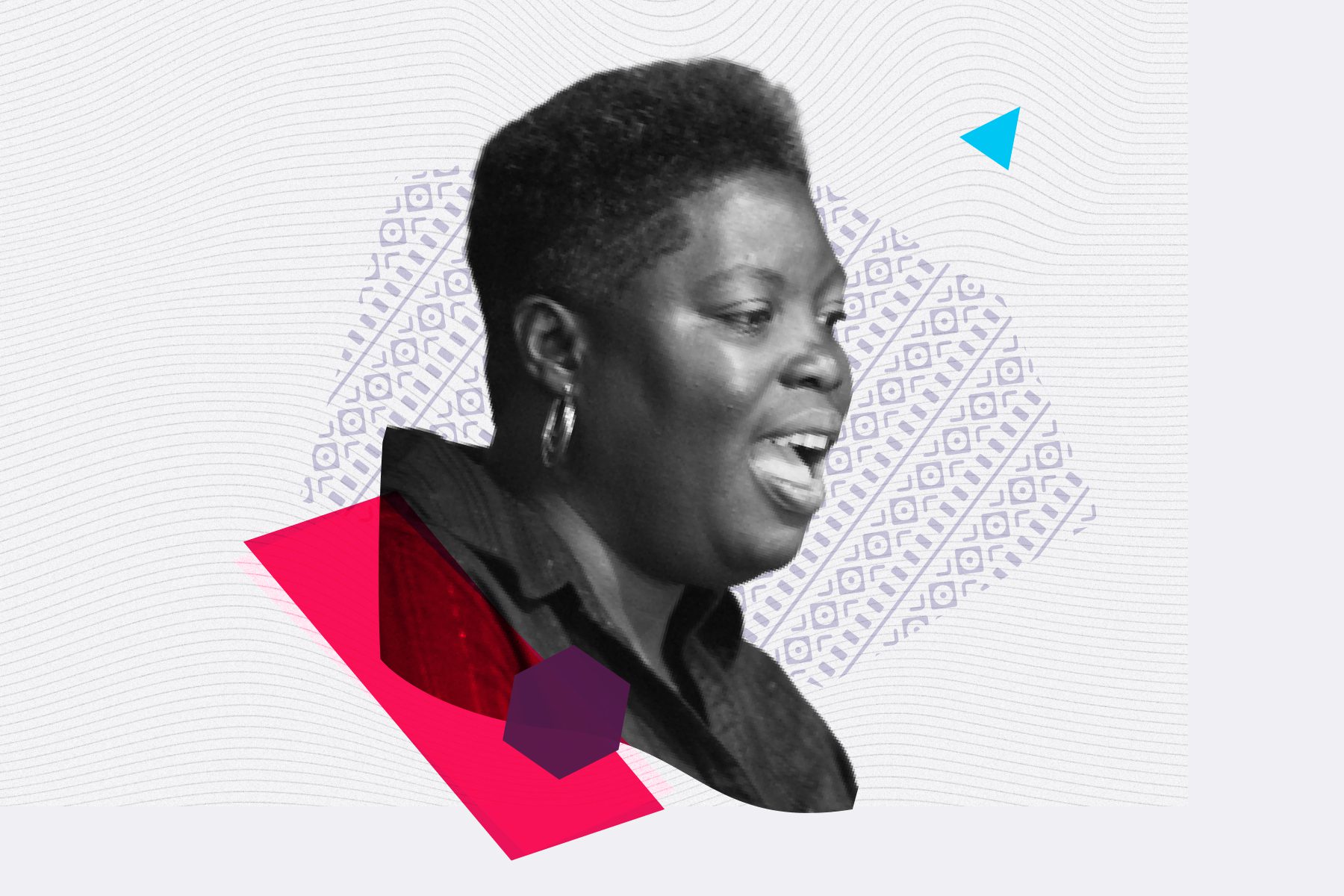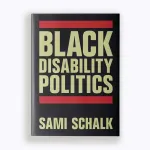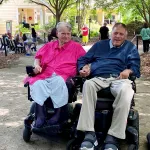Lois Curtis was a lifelong Georgia resident, an artist and a plaintiff in one of the most consequential disability rights cases decided by the Supreme Court of the United States, Olmstead v. L.C. The 1999 case led to more states allocating funding for people with disabilities to live in their own homes – something that had previously been rare. Curtis died on November 3 at the age of 55.
The Olmstead case established that people with disabilities like Curtis, who had schizophrenia and developmental disabilities, had a right to live in the community in their own homes, rather than in state hospitals and other institutions. Curtis and another plaintiff, Elaine Wilson, challenged Tommy Olmstead, the Georgia commissioner of human services, about the state’s decision to keep the women in isolation.
Their lawyer Jonathan Zimring argued that under Title II of the Americans with Disabilities Act, the state was required to allow people with disabilities to live in the “least restrictive” environment possible. He, Curtis and Wilson won. And in doing so, they changed the landscape of disability rights in the United States. While at least 700,000 people are still on waiting lists for home care nationwide, the case required that states move towards home care.
Before the case, Curtis lived a confined life, locked away from wider society. After the case, she blossomed and became a professional artist and advocate. In 2011, she visited the White House and gifted former President Barack Obama a portrait she made of him.
Despite her key role, few people outside of the disability rights community know her name. Major news outlets covered her death, but few had covered her life in the years after the landmark case was decided. For those whose lives her case touched and transformed, her impact will never be forgotten.
-
More from The 19th
- From the mighty to the mundane, a visual timeline of Black life in America
- Supreme Court case altering Medicaid is ‘an assault’ on older adults and people with disabilities, advocates warn
- Medicaid program expands funding for seniors and people with disabilities, but its future remains uncertain
The 19th interviewed some of the Black, disabled advocates inspired or influenced by Curtis about her legacy and what she means to them.
“This case represents so much for me personally,” said Jennifer White-Johnson, 41, a design educator and self-described “art activist” based in Baltimore. “Knowing that Lois fought for her own autonomy and the autonomy of others shows the power and strength that exists in being Black and disabled.”
Johnson is the originator of the Black Disabled Lives Matter symbol, which was popularized during the protest movements for racial justice in 2020. Her son, Knox, is 10 and autistic. She praised not only Curtis’ advocacy, but also her art.
“There is an unapologetic joy and authenticity that shines through in all of the portraits Lois created,” Johnson said. “Artists like Lois inform so much of my work that solely centers on art activism. Uplifting neurodivergent joy and caregiving are important acts of resistance in a society that so often devalues disabled communities.”
Finn Gardiner, 36, is the director of policy and advocacy for the Autistic People of Color Fund. The organization gives no-strings-attached micro-grants to autistic people of color for anything ranging from groceries to art supplies.
Gardiner believes that systemic bias sidelined Curtis during her life. In particular, he pointed out that Black advocates in the disability community are doubly marginalized.
“The conversation about disability rights has been dominated by White men who, although they may be disabled, are not necessarily going to understand racism or misogyny. Somebody like Lois Curtis is going to be pushed aside,” he said.
Curtis also faced barriers because of the kind of disability she had, according to Gardiner.
“There’s a divide in the disability community between people with physical disabilities and people with disabilities that affect their cognition or their mental health. So there are people who have paralysis who will say, ‘Oh, I can’t walk but at least my mind is fine.’… I find it infuriating as someone who is autistic and has some psychiatric disabilities as well,” he told The 19th.
Artist Derek Heard, 22, never met Curtis. But he knows that the life he has is, in no small part, possible because of her life and work.
Heard has autism and because of his disability, he did not speak for the first few years of his life. He was funneled into a segregated school system in Georgia for people with disabilities — the Georgia Network for Educational and Therapeutic Support, or GNETS for short. Students at GNETS were disproportionately Black, and even attended the same schools from the Jim Crow era. The schools are so under-resourced that many lack basic facilities like playgrounds and gymnasiums.
“Derek didn’t really have a chance at the regular school system,” explained Derek’s mother, Theresa Heard.
In 2016, the Justice Department brought a lawsuit against the state of Georgia for unnecessarily segregating disabled students like Derek. The Justice Department cited Olmstead.
While the GNETS school system still exists, the suit afforded an opportunity for Derek’s family to get him out.
“I thought if Derek was attending this school [for people with disabilities] they would understand his behaviors and be accommodating, but that didn’t happen at all… I didn’t realize how much of an impact it had on Derek,” Theresa Heard said. “When he [started in mainstream school] he just exploded socially. He was out there talking to people. A total social butterfly.”
“Because of Lois, I can go to school with the other [non-disabled] students. I like it a lot better,” Derek Heard told The 19th.
Because of Curtis, Derek Heard is also able to live with his family, rather than in a state hospital. He has only ever lived at home, which was less of a possibility for people with disabilities in previous generations.
“I like living with mom and dad,” he said. But he also wants to live in his own apartment one day. He even has a favorite neighborhood picked out, which he showed The 19th on his iPad during the interview.
Like Curtis, Heard is an artist. He has been commissioned by disability organizations like the American Association of People with Disabilities to create art to promote their voting initiative, among other projects. He is also working on a series of drawings about Curtis’ life and work, some of which he shared with The 19th.
One compares Curtis’ beauty to a flower. Another reads: “Rest in power.”







